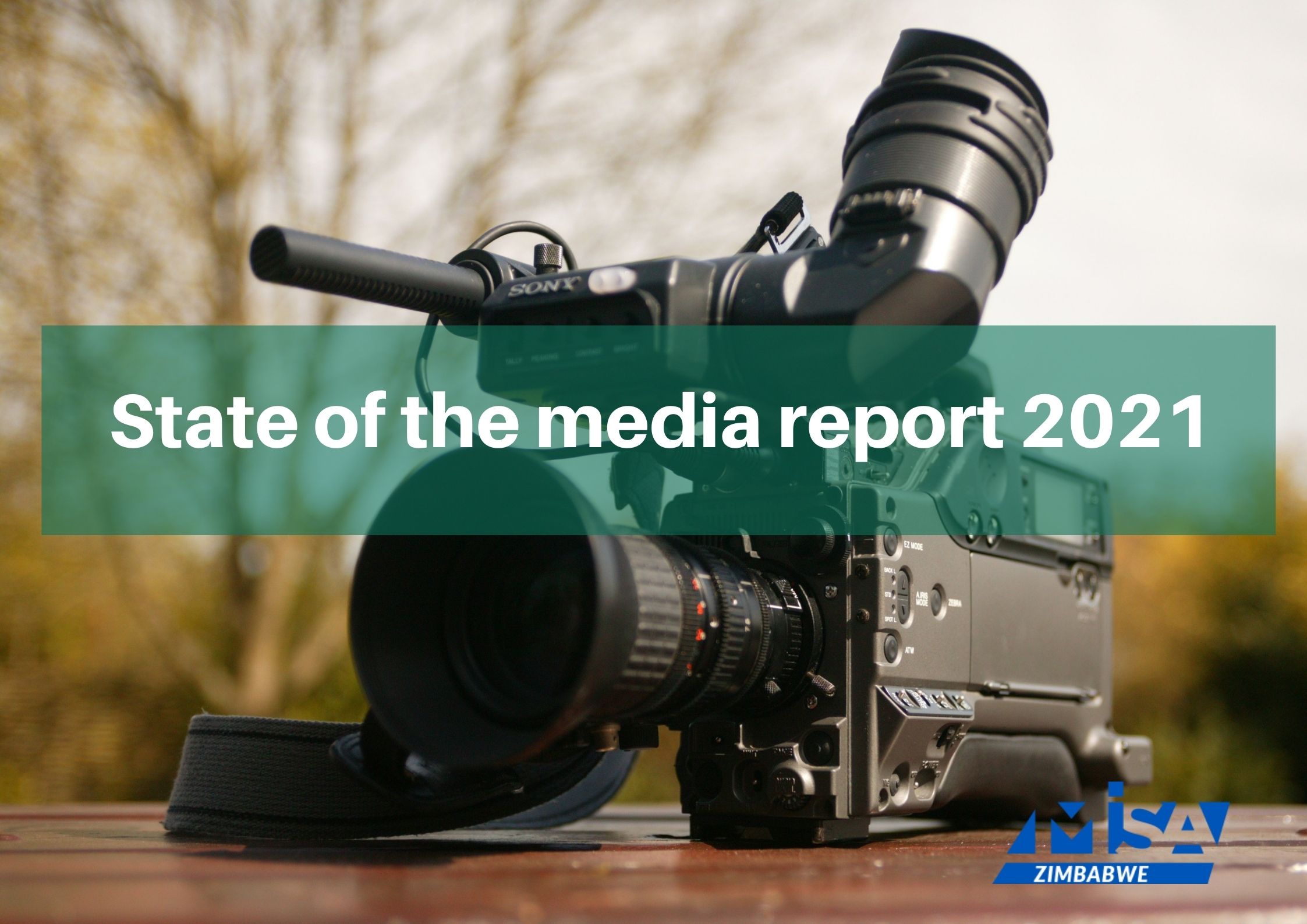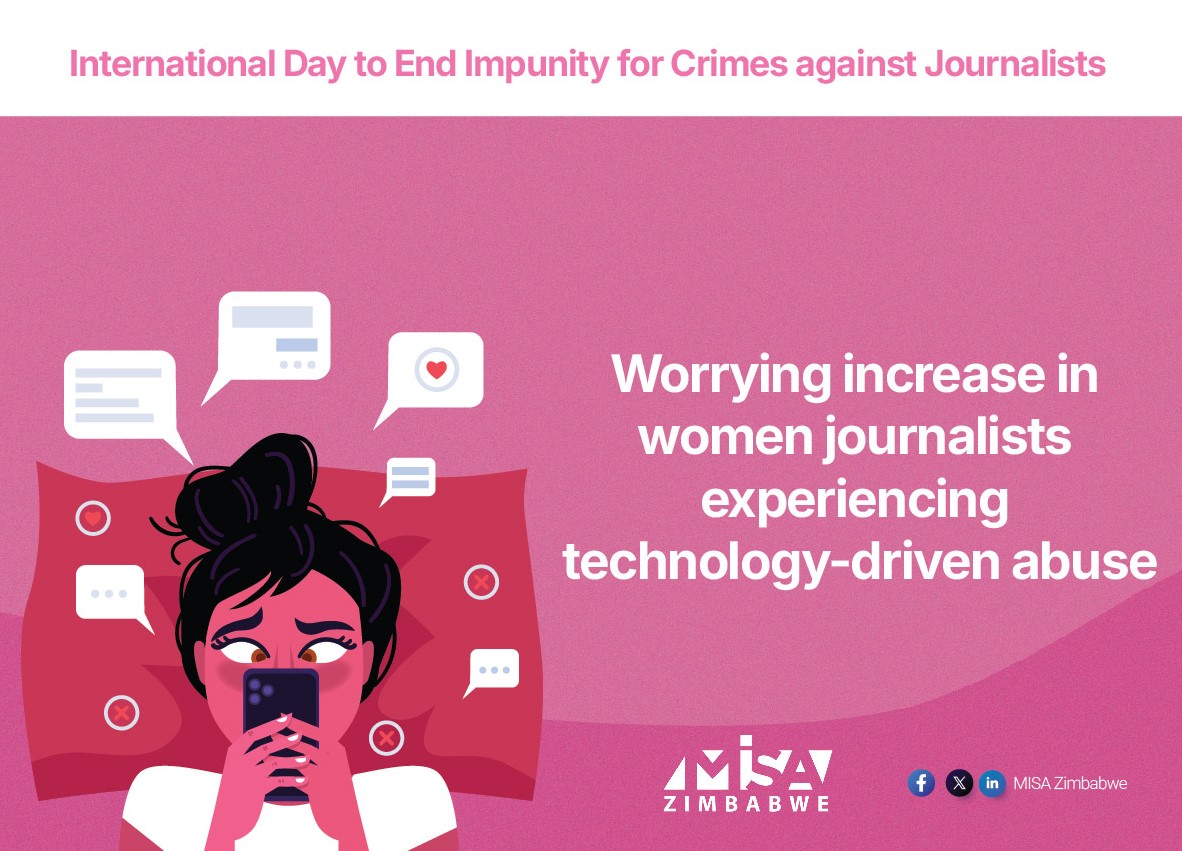MISA Zimbabwe would like to announce the publication of the 2021 state of the media report which takes a look at the media landscape and operating environment with regards to freedom of expression, access to information, digital rights, media sustainability and media freedom in Zimbabwe. Below is an excerpt from the report;
United Nations Special Rapporteur on the Rights to Freedom of Peaceful Assembly and of Association, Clement Nyaletsossi Voule, following a visit to Zimbabwe in 2019, noted in a subsequent report that Zimbabwe was suffering from political polarisation and poor governance.
The Special Rapporteur noted then, that civic space continued to deteriorate, re-establishing an environment of fear and persecution.
The UN Special Rapporteur’s report came on the backdrop of his visit to Zimbabwe on 17 – 27 September 2019 at the invitation of the Government. The purpose of the visit was to assess the exercise, promotion and protection of the rights under his mandate in a moment of transition following the adoption of the new Constitution in 2013 and the change of leadership in Zimbabwe.
He urged the government to take action to end corruption, and tellingly, to improve the human rights situation and ensure accountability and rule of law to encourage the lifting of “measures” imposed on Zimbabwe.
The Special Rapporteur recommended for the repeal of legislation that is inconsistent with the Constitution particularly that affecting the exercise of fundamental freedoms.
He also said steps should be taken to ensure that all those monitoring assemblies, including journalists, media workers and human rights defenders, are allowed to do so and are protected at all times during assemblies and that violations are duly investigated.
The government was also urged to refrain from introducing restrictions on access to and the use of the internet, including shutdowns.
His observations then, came prior to the gazetting of the Private Voluntary Organisations (PVO) Amendment Bill at the end of 2021.
If enacted, the PVO Amendment Bill threatens to muzzle the work of civic society and negatively impact on the operating media freedom and freedom of expression and free expression environment ahead of Zimbabwe’s 2023 general elections.
The gazetting of the PVO Amendment Bill also came on the backdrop of Zimbabwe’s slippage in the Reporters Without Borders’ 2021 media freedom rankings.
Zimbabwe slid in the rankings, falling from 126 to 130.
The downside of these developments should, however, be viewed on the progress made on the access to information front following the enactment of the Freedom of Information Act as well as the marked reduction in the number of media freedom violations in 2021 compared to 2020.
Zimbabwe’s 2013 Constitution explicitly provides for the right to access to information, freedom of expression and of the media, among other progressive provisions under its Bill of Rights.
In that regard, commendable steps were taken to give effect to the enjoyment of the right to freedom of information through the enactment of the Freedom of Information Act in 2020 in place of the widely discredited Access to Information and Protection of Privacy Act (AIPPA).
The new information law is a progressive step towards fostering citizens’ right to access to information. Other commendable developments include the licensing of the country’s first-ever community radio stations and ‘private’ commercial television stations.
However, these progressive steps risk being marred by some claw-back provisions in some of the laws such as the Data Protection Act (despite some of its progressive provisions) and the gazetted PVO Amendment Bill.
Further, the Government of Zimbabwe is drafting amendments to the Criminal Law (Codification and Reforms) Act aimed at criminalising engagements between citizens of Zimbabwe and foreign embassies without government approval.
The Ministry of Justice, Legal and Parliamentary Affairs on the 16th of November 2021, made submissions to the Parliamentary Portfolio Committee on Foreign Affairs and International Trade on the status of the principles of the proposals to regulate Zimbabwean citizens’ engagement with foreign governments.
In a virtual presentation to the Committee, the Ministry’s Law Officer – Policy and Legal Research Department, Ms P. Dhokwani, noted that the principles which are set to amend the Criminal Law (Codification and Reform) Act were approved by Cabinet and were now with the drafters. These two proposed legislative steps have far-reaching impact on the ability of civil society to perform its duties within the borders of Zimbabwe.
In essence, the laws seek to criminalise civil society’s work at a magnitude never witnessed before in the history of Zimbabwe as a solitary state.
To access the full report, click here: State of the Media Report 2021













